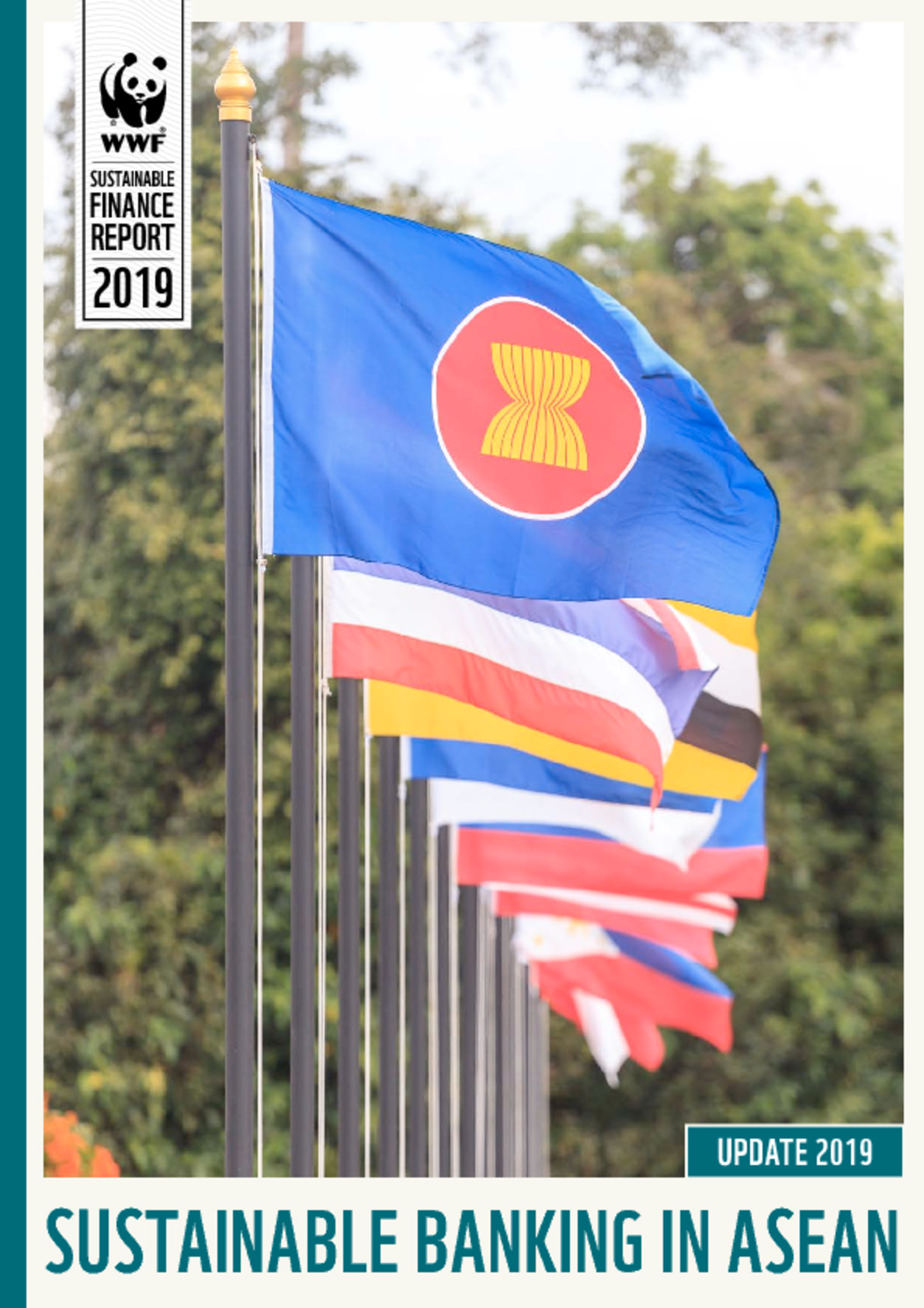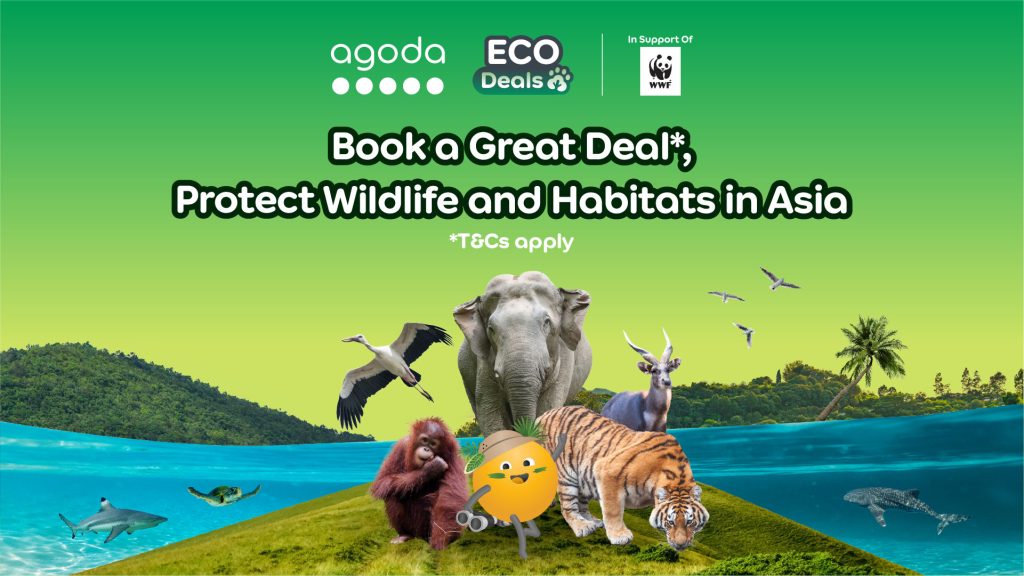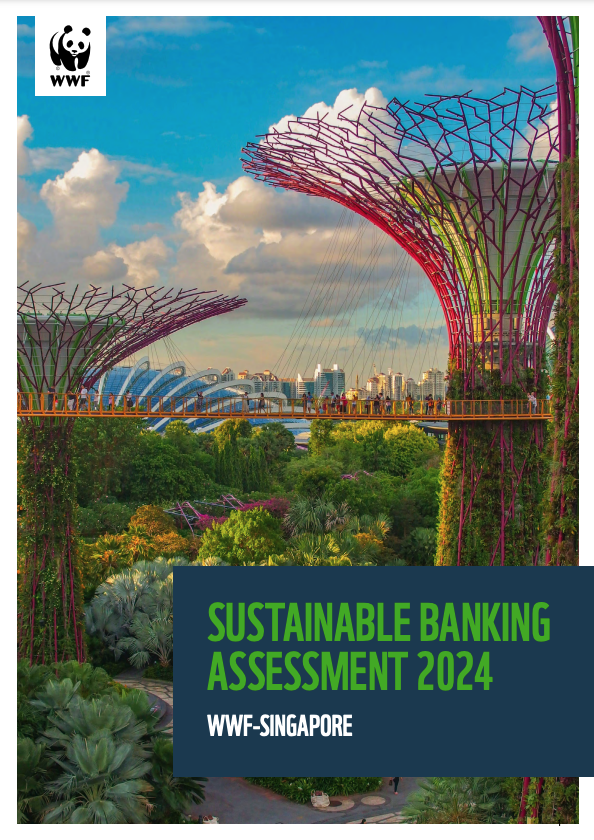SINGAPORE, August 21, 2019 – ASEAN is facing existential threats such as climate change and environmental degradation, which could potentially lead to financial instability and social unrest. WWF’s 2019 Sustainable Banking Assessment (SUSBA) finds that the 35 ASEAN banks assessed are not responding fast enough to these threats, based on the level of ESG integration as measured by a framework covering six aspects (Purpose, Policies, Processes, People, Products, Portfolio). Of the 35 banks assessed, only 4 banks from Singapore and Thailand fulfilled at least half of the 70 criteria and 51% of the banks fulfilled less than a quarter of the criteria. However, there is still progress with 74% of the banks making some improvement compared to last year. In particular, DBS, OCBC and UOB have demonstrated leadership by prohibiting the financing of new coal-fired power plants and implementing no deforestation commitments.
The uneven progress undermines the region’s response to impending threats as unsustainable activities continue to be financed.
“ASEAN’s economies are very much interdependent, which magnifies the effects of climate change and environmental destruction. To ensure that businesses are resilient and the people of ASEAN have a secure future, ASEAN banks need to manage climate and other material environmental risks and opportunities in their portfolios,” said Jeanne Stampe, WWF’s Head of Asia Sustainable Finance.
ASEAN banks are also leaving money on the table by not actively supporting the urgently needed transition to a low carbon and sustainable economy. A DBS and UNEPFI study estimated the demand for green investment to be US$3 trillion from 2016 to 2030 in sectors such as infrastructure, renewable energy, energy efficiency, food, agriculture and land use. While 51% of banks that offer green financial products have mostly focused on renewable energy, there remains a huge financing gap in the other sectors.
Regulators and investors sense the urgency to tackle these issues but ASEAN banks are responding slowly
Only 9% of banks have developed a strategy to manage climate-related risks or conducted climate-risk assessments, even though regulators are increasingly expecting banks to test the resilience of their loan books to climate risks and report the results. Central banks of Malaysia, Singapore and Thailand have joined the Network for Greening the Financial System (NGFS), which is recommending central banks and supervisors to better integrate climate-related risks into financial stability monitoring. By the end of the year, 7 banking associations or regulators in ASEAN will have issued sustainable banking guidelines.
In addition, 374 financial institutions representing US$118 trillion of assets have endorsed the Task Force on Climate-related Financial Disclosures (TCFD), which has specific recommendations for financial institutions on the management of climate risks. Banks are laying the foundations for good governance of ESG issues with 57% of banks having senior management oversight of ESG issues, nearly half of which have additional responsibilities over climate-related risks and opportunities. In order for this to translate into effective management of material ESG risks, they need to create robust policy frameworks that integrate science based standards. For example, only 14% of banks require their clients to commit to international sustainability standards for their sector policies.
Investors are increasingly engaging with banks on their management of climate and environmental risks. Alistair Thompson, Director of First State Investments (Singapore) said, “The WWF Sustainable Banking assessment has proven to be a valuable tool for us in ASEAN. It allows us to track where progress is being made, or not, and the areas in which investors like ourselves can push for improvement. We have used it to engage in areas such as Thermal Coal and Palm Oil.”
ASEAN finance sector is vulnerable to climate risk and environmental degradation
ASEAN economies remain highly dependent on fossil fuels, which contribute significantly to climate change. 91% of ASEAN banks continue to finance new coal fired power plants and increase their exposure to climate related transition risks such as carbon taxes and significant improvements in renewable energy technology.
Coal, however, is not the only problem. Rampant deforestation exacerbates climate change and causes biodiversity loss. Biodiversity, soils, rivers, forests and oceans form the natural capital asset base which produces ecosystem services such as climate and air quality regulation as well as food, raw material and freshwater provision. The recent IPCC special report on land use and climate emphasizes that sustainable land management alongside rapid decarbonisation of the energy system are critical to meet the 1.5°C goal of the Paris Agreement. SUSBA finds that only 9% of banks have no-deforestation policies, despite being home to some of the world’s deforestation hotspots in Greater Mekong, Sumatra and Borneo.
Despite climate change resulting in Southeast Asia suffering from more intense and frequent water-related disasters, ASEAN banks are also not adequately managing water-related risks. Just 17% of banks recognize water risk and none require clients to conduct water risk assessments. For instance, Thailand faced $42 BN of economic losses from the 2011 floods and this may worsen with 40% of Bangkok at risk of inundation by 2030. Malaysia’s water resources are projected to be depleted by up to 25% by 2030.
“Natural capital assets are the source of our economic and social wealth. In order to ensure the prosperity of ASEAN’s economies, we must protect and invest in these assets. Asia Sustainable Finance Initiative (ASFI) can support banks to achieve this through science-based tools, standards and research”, said Jeanne Stampe.
— ends —
About the report
This is an update of WWF’s 2018 ‘Sustainable Banking in ASEAN report. The report benchmarks 35 ASEAN banks in six countries against a set of indicators that represent the robust ESG integration pillars ((Purpose, Policies, Processes, People, Products and Portfolio). The results are presented in an online interactive platform (www.susba.org) which allows users to compare selected banks and indicators based on their preferences.
Only publicly available disclosure in the English language in the form of 2018 annual reports, sustainability or CSR reports released by 9th July 2019 and information posted on corporate websites were taken into consideration for this assessment.
We would like to acknowledge the following donors for funding the report:
Gordon and Betty Moore Foundation;
International Climate Initiative (IKI). The Federal Ministry for the Environment, Nature Conservation and Nuclear Safety (BMU) supports this initiative on the basis of a decision adopted by the German Bundestag. The views expressed in this publication are the sole responsibility of the authors and do not necessarily reflect the opinion of the Federal Ministry for the Environment, Nature Conservation and Nuclear Safety.
For more information please contact:
Julien Anseau, WWF International, Email: janseau@wwfint.org, +65 9233 8270















